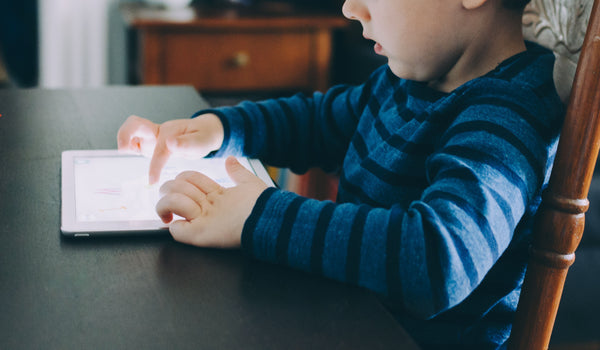The Impact of Emotional Intelligence On Learning and Classroom Engagement

Children face a great many struggles in life these days. From learning how to tie their shoes and operating digital devices to achieving learning outcomes while sitting for hours in a controlled school environment each day, there's a significant amount of pressure on the little ones. When it comes to learning and classroom engagement, a child's IQ comes into play as does his/her emotional intelligence or EQ. The higher a child's EQ, the more likely he/she is to achieve learning outcomes and engage in the classroom.
This concept first became popular after science journalist, Daniel Goleman, began writing on the topic after reading the research of John Mayer from the University of New Hampshire and Peter Salovey of Yale. They found that various qualities that form one's EQ could predict a child's future success; holding the power to set them apart from peers. These qualities include:
- Empathy
- Social skills
- Motivation
- Self-awareness
- Self-regulation
How to Increase Classroom Engagement and Learning Outcomes
The ability to exhibit the above qualities increases a child's level of EQ, which helps facilitate classroom engagement and learning. Learning is at its peak when children are being challenged during the process. This means that the more a child sits with a problem and struggles with it, the greater their learning outcomes will be. This helps equip children with the tools needed to solve life problems that arise in the future.
Dr. Melina Uncapher, neurology professor at UCSF, states that children who learn easy lessons tend to quickly forget them. However, when they take some time to really chew on a problem, it becomes deeply encoded in their brains. This type of learning is possible when children are given permission to fail, as it's a vital piece of the learning process. In order for a child to be comfortable with failure, EQ and classroom engagement are key.
How Emotional Intelligence Influences Classroom Engagement and Learning
Children who have low emotional intelligence face more struggles when it comes to learning and engaging in the classroom. They tend to find it more difficult to concentrate and build positive relationships with peers. They may also exhibit moodiness, anger, and aggression when faced with problems. This is because these children lack the skills needed to manage emotions and communicate their feelings in healthy ways. Having an inability to resolve conflict, express themselves to others, and feel empathy for peers in the classroom can have a negative impact on a child's level of classroom engagement, and overall learning outcomes. While this situation sounds bleak, there is hope for children who struggle with emotional intelligence.
How to Increase Your Child's EQ and Overall Learning Outcomes
Unlike IQ, emotional intelligence is something that can change over time. This means that with the right amount of training and intervention, children can increase their EQ and become more successful students. When achieving such goals, it helps to teach children lessons that will support:
- Delayed gratification
- Empathy toward others
- Charity and gratitude
- Positive thinking
- Seeing the big picture
- Handling frustration and allowing space for mistakes
If you'd like to help increase your child's level of emotional intelligence there are a variety of tools available to assist you. Visual tools such as posters, games, videos, and books that promote the goals listed above are helpful. You may also want to engage in some role-playing exercises, and use mood bands to teach your child healthy methods of self-expression. Increasing your child's EQ is something that cannot happen overnight, but with a bit of time and dedication, you can help support the success of your child's learning outcomes and overall future success.
Jayna Nickert, MBA, MFT. Jayna is a writer, integrative therapist, and entrepreneur residing in San Diego, CA. When she isn't writing or playing with her dogs at the beach, she enjoys helping children and adolescents. As a therapist in a prep school setting, she's equipped junior high and high school students with the tools needed to process and manage symptoms of depression, anxiety, stress, bereavement, and trauma.
Also in Blogs

Does Your Child Live in a High-Conflict Environment?

“What's On?” The Impact Of Media On Kid's Emotional Well-being

